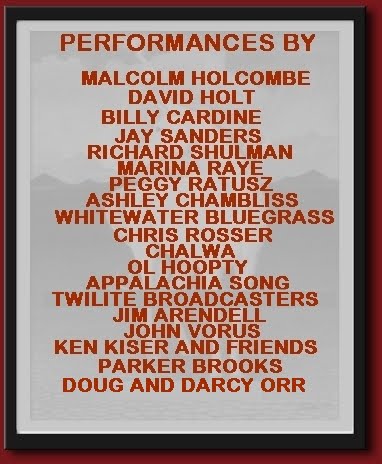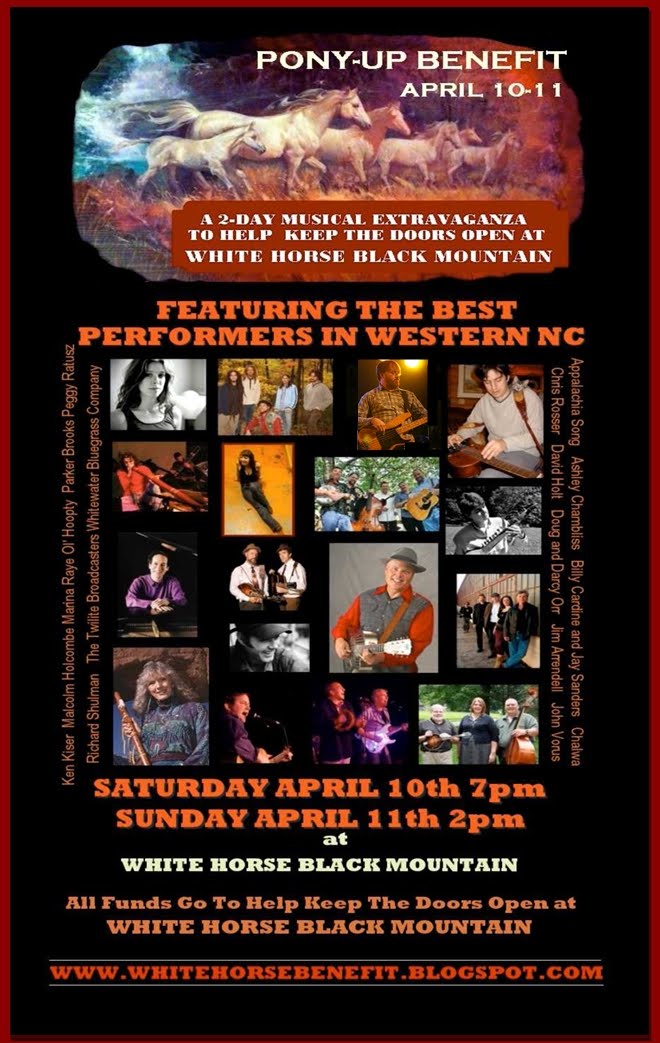www.malcolmholcombe.com
 "Not quite country, somewhere beyond folk, Holcombe's music is a kind of blues in motion, mapping backwoods corners of the heart." ~David Fricke- Rolling Stone Magazine
"Not quite country, somewhere beyond folk, Holcombe's music is a kind of blues in motion, mapping backwoods corners of the heart." ~David Fricke- Rolling Stone MagazineBorn and raised in the Blue Ridge mountains of North Carolina, Malcolm Holcombe is being recognized by the contemporary U.S and European folk/americana community as a performer of national stature, and an uncommonly unique guitarist/vocalist about whom Rolling Stone Magazine says: "Haunted country, acoustic blues and rugged folk all meet [here]..."
A new 12 song Malcolm Holcombe CD, Gamblin' House, was released January 29, 2008. There is strong and positive press surrounding this CD, including feature articles in the January/February 2008 No Depression Magazine, and in The Wall Streeet Journal(2/14/08), and rave reviews from Billboard Magazine, Harp Magazine, and Paste Magazine.
Gamblin' House was in the top 20 of the Americana Music Association chart for 9 straight weeks.
As always, there are echoes of John Prine and Guy Clark and the lesser-known kindred spirit Bill Morrissey, but the total package is all Malcolm Holcombe. His is a sound that combines harmonica-blessed folk, acoustic blues, stringband country, and smalltown-bred soul.
The small town in question is Weaverville, North Carolina, a burgh of a couple thousand just 10
 miles north of Asheville. That's Malcolm's Mom and Dad and two older brothers on the cover of his 2005 release I Never Heard You Knockin', standing in front of the Weaverville homestead.
miles north of Asheville. That's Malcolm's Mom and Dad and two older brothers on the cover of his 2005 release I Never Heard You Knockin', standing in front of the Weaverville homestead.His uncle played guitar, as did his neighbor. "He'd sit on the porch and play electric guitar," Malcolm recalls of that neighbor, adding, "And he had a couple of cute daughters." Perhaps with that added incentive, Malcolm started playing guitar. "I was just another kid with the Mel Bay chord book, and I only got through the first page," he says.
"....... you need to see Malcolm onstage; his legendary performances are intense and all out. "If you're gonna do something, do it," is his explanation. "If you're gonna dig a ditch, dig a ditch. If you're gonna shine a shoe, shine a shoe." In other words, if you're gonna stand in front of a crowd of strangers with just your guitar and your songs, make it worth their time. He does it by presenting those songs with a gospel fervor (call it half howl, half hosanna) and with a penetrating stare, aimed (thank goodness) at nothing and no one, that becomes almost as deeply ingrained as his songs. It's sinewy and unfussy, the man, the music, and the delivery.
"We all have our demons, and we all have our spirituality, whatever keeps us going," is how Malcolm puts it. "When it comes to the end of the day, it's God, family, and neighbors."




